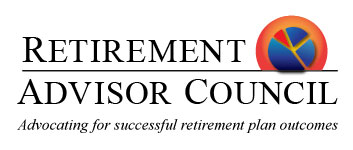Although Americans are being asked to bear more responsibility for their retirement, many lack the financial literacy skills or interest to answer the most vital questions, such as: “How much should I contribute? In what options should I invest? How much money will I need in retirement? And how will I manage the many financial risks I’ll face as a retiree?”
Solutions to the retirement readiness challenge usually take one of two directions: the improvement of education or the implementation of automated features in retirement plan design. Globally, myriad solutions have emerged: from mandatory participation in an employer’s defined contribution (DC) plan to auto-enrollment of employees into the DC plan, to voluntary DC/DB (defined benefit) and hybrid elements.
Plan design is critically important, but it won’t address the broader societal problem of poor financial literacy. The shifting risk from DB to DC — from employers to employees — shines a spotlight on a far greater problem than the retirement readiness challenge: basic financial illiteracy.
Workplace initiatives needed
We need to improve the financial literacy of working adults. Essential efforts are already being made to improve financial literacy among students, but we also need forward-thinking initiatives specifically designed to help our current workforce make better financial decisions. This applies to retirement planning and saving as well as other aspects of financial life. The two phases in everyone’s financial life –– retirement and non-retirement –– while seemingly distinct, affect one another profoundly.
For instance, workers who use payday loans are less likely to contribute to their retirement plans. How can we expect our messages to succeed in directing plan participants to boost their retirement contribution levels when young adults typically enter the workforce saddled with student loan debt? And how can those messages lead to the desired behaviors when plan participants don’t have a solid grasp of financial planning and budgeting concepts?
Many employees need help just to understand budgeting basics, which is fundamental for their current and future financial well-being. How can individuals be expected to set aside enough money to save properly for retirement, or manage their money in retirement, when they haven’t mastered how to make sure that income spent each month doesn’t exceed income earned?
Adults need guidance on how to gain control of their monthly spending habits and how to confront our commercial world by determining wants versus needs.
This lack of basic understanding and financial self-control has fed a booming payday loan industry that, as noted above, presents an obstacle to broader retirement plan participation.
We need to do more to help our workers understand and manage all aspects of their finances better. That’s a crucial first step in helping to improve retirement readiness and promote successful lifelong personal financial management.
Look for continuation of this blog series discussing adult financial illiteracy. We welcome you to share your ideas for better financial futures.
Contributors: Charlie Avallone, Jason Chepenik, Mike Kane, Deb Rubin, Sharon Schmid, Jamie Worrell







































